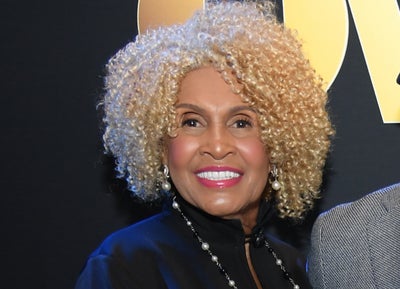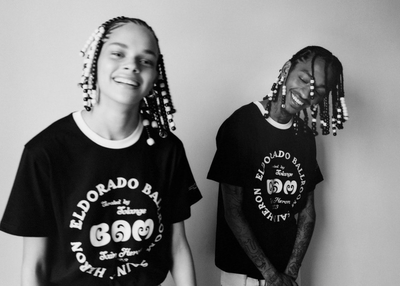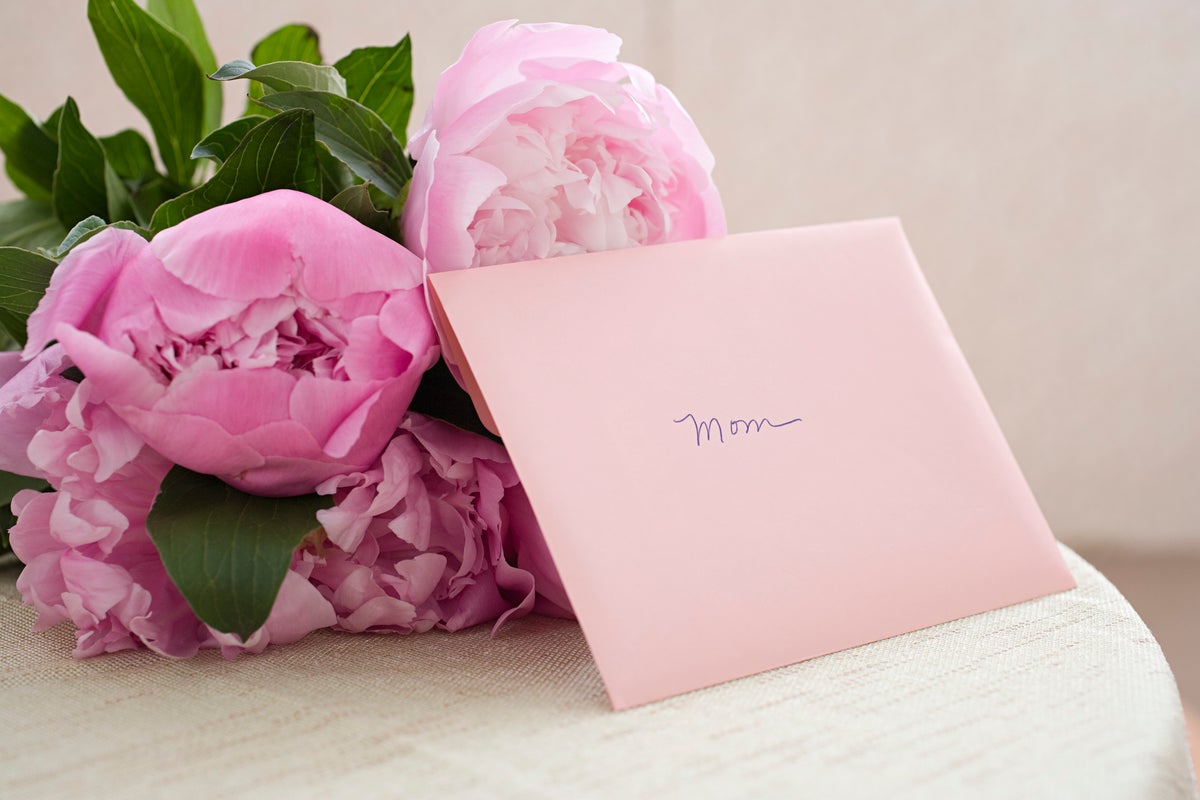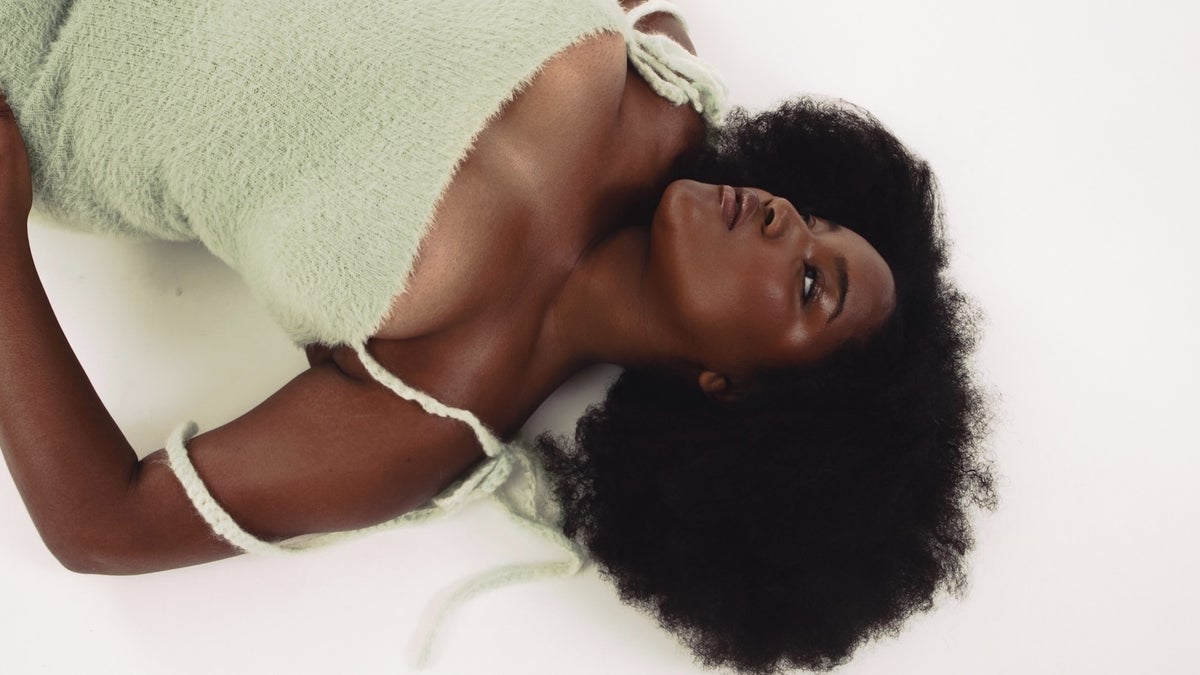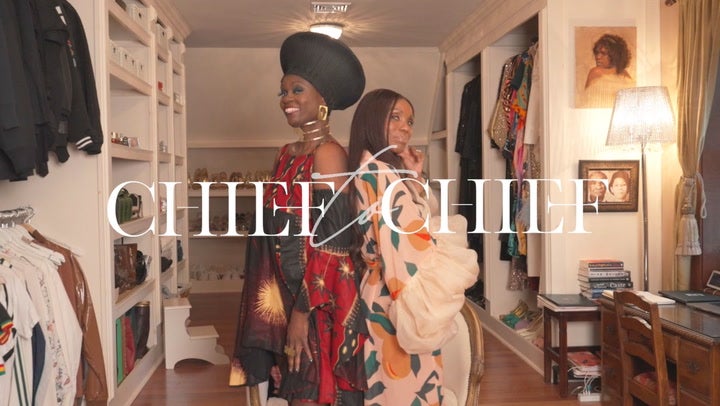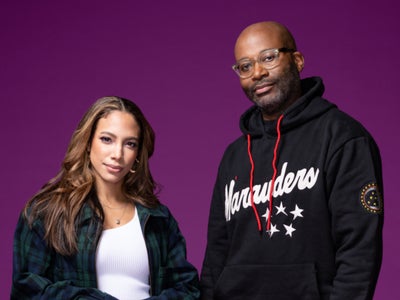
Since its inception in 1973, hip-hop has given a voice to the misrepresented and provided a creative and financial outlet to the poor and disenfranchised. Now, it has evolved into not only the most popular music genre in the world, but a cultural behemoth that will forever be ingrained in the fabric of the United States. Although this growing artform has captured the zeitgeist of this generation, its participants are continually scrutinized, oppressed, and degraded in a variety of ways; many of which are highlighted in NPR’s groundbreaking podcast, Louder Than A Riot.
Launched in September of 2020, this program is hosted by heralded journalists Sidney Madden and Rodney Carmichael, and was the first narrative podcast series from NPR Music. It’s overarching theme is, of course, hip-hop, but Louder Than A Riot’s inaugural season examined the the decades-long issue of mass incarceration within the genre, featuring accounts and experiences from artists, writers, experts, activists and music industry insiders directly affected by the criminal justice system, along with analyzing the factors that may have contributed to the larger concern of discrimination.
“We always try to look at the relationship between rhyme and punishment as our guiding principle,” Madden says about the conversation between her and Carmichael prior to compiling the information needed with each of the yearly installments. “We talk about which stories we want to tell within the culture that best represent the theme that we can match to the sociological connection or the sociological shift that’s going on that hip-hop is either leading the charge in, or perpetuating and being really redundant with.”
Louder Than A Riot’s second season premiered earlier this year, and centered on the topic of misogyny in hip-hop and the demographic that it marginalizes – that of Black women and members of the LGBTQIA+ community. It included subjects such as iLoveMakkonen, Rico Nasty, Saucy Santana, Trina, and Megan Thee Stallion, among others; with each passing week delving deeper into the problems that plague the music industry and the culture that surrounds it.
This critically acclaimed limited series became one of the most important podcasts available within a few episodes and continues to create discussions about hip-hop and beyond. Now, with an uncertain future, Louder Than A Riot remains more important than ever. Here, its two hosts discuss the complex relationship between Black women and entertainment, show preparation, fatherhood, and more.
Okla: I want to talk about the topics that you explore on a week to week basis. Last year was more so about incarceration as it intertwines with hip-hop. This year it delves more into a discrimination against certain genders and sexual preferences in hip-hop as well, too. What’s the preparation like before each episode?
Sidney: It’s a huge endeavor both times. Like you said, Okla, season one was about the relationship between hip-hop as an art form and a culture and its relationship to mass incarceration, in a carceral state in America; where season two is about looking inward at the culture and thinking about who gets marginalized within hip-hop. And with both seasons and the series premise overall being narrative nuanced storytelling from a hip-hop point of view.
So, for both seasons it took over a year of reporting because we really try and tap in with our sources – we do a lot of research, we’ve covered court cases in some episodes. That means going over hundreds of pages of court transcripts, getting in touch with as many people who were involved in the case as possible. If it’s tapping with an artist and doing something like a profile to talk about what their artistry and their persona and their aesthetic means in hip-hop at this very moment, that means we’re going to talk with them multiple times over the course of months for some people. It’s really about a commitment to telling the stories in a more layered way than they usually are told within the hip-hop news cycle. So, you got to put the work in, you got to put the time in.
Sidney, being a woman of color and being so connected to the hip-hop space, I know I’m guilty of it too, a lot of our favorite artists back in the day, they would say some wild stuff. I won’t say any names, but how do you feel about misogyny and hip-hop and how do you feel about the state that hip-hop is in today regarding that?
That’s a big question, Okla. Okay, we’re getting into it. I think that I’ve also grown up on hip-hop. I know exactly what songs you are talking about ‘cause I used to sing them too. I think Moya Bailey, who is a sociologist, a professor who coined the term, misogynoir, which is the specific sexist racism that falls on the shoulders of Black women. She’s also a hip-hop lover and she also sang a lot of those songs. But Moya’s epiphany, which led her to coin the term back in the early 2000s, was how the music translated to how Black women were being treated in real life, i.e., outside the fantasy of the music video or the glitz and glam of the bubble of the music industry. So, whenever I grapple with misogyny or misogynoir in hip-hop, I always connect it to what is the real world implications of this art form.
I think it’s a constant process. When Chickenheads Come Home to Roost does a really great job of breaking down that gray area and that milieu of deciding and negotiating on a daily and sometimes hourly basis, ‘cause the music comes out so rapidly at this point. I think it’s a layered experience, but that’s the experience of being a human and being a lover of an art form that sometimes does not love you back explicitly. I think with this season what we wanted to do is really pull back the curtain of some of the more normalized moments misogynoir in hip-hop to really shine the light on their deeper meanings and their deeper implications and their effect on women in America, but particularly Black women in America.
Black women in America have the highest rates of maternal mortality. Black women in America, Black girls are discriminated against in school disproportionately compared to any other student demographic. And at the same time, Black women and girls are the ones setting trends in all facets of culture, whether it be beauty or tech or education or hip-hop. Like the rap girly revolution is very much here and upon us and it’s being televised and we’re the ones theorizing around it.
Rodney, from the male perspective, how do you feel about the state of misogyny in hip-hop today?
And in terms of just how back in the day, a lot of our favorite artists, that was the bulk of their content. And now –
And currently; it’s a lot of current artists’ content, too.
Yeah, it is. It’s always been a thing. People feel like when you listen to or you support some, you’re perpetuating. But how do you feel about that aspect of it being a male that writes and loves this music industry?
Rodney: I do think that there’s a silent complicity that’s happening when we indulge in the music, celebrate the music, claim the music and the culture as our own without questioning it out loud. I think that hopefully we can all admit that at times, when we are alone with ourselves and our thoughts, that we think about some of those things. I would hope. Maybe that’s too much to say; maybe at a certain age. I don’t know if I was doing that when I was the age that the average hip-hop artist is today, but there’ve definitely been periods and phases in my life where I’ve had to just take pause and reflect deeper about how different the music that I love and claim represents me so well. In that particular way, it didn’t seem like it represented how I feel or how I felt about women. And if it did, then maybe I wasn’t doing enough self-examination.
Just speaking more recently in my own life, becoming a dad the last couple of years has definitely given me another period in my life to kind of think a lot about that, because anything else that you love, it’s natural to want to share your music and your culture with your kids. They’re going to hear it anyway just because if you live hip-hop, you play it in the house the same way our parents played R&B and whatnot in the house back in the day. So you start exposing them before you really even get to start thinking about and grappling with what exactly it is you exposing them to.
So that’s something that we deal with this season as well. And it’s something that hopefully people shouldn’t have to wait until they’re fathers to think about that kind of stuff. But I do think that hip-hop has had a couple of moments. I can think of a couple of periods in time. I know maybe a little more than a decade ago. Dang, maybe almost two decades ago now, there was a real hip-hop on trial kind of period where from Oprah Winfrey town halls to… This was kind of on the hills of the Tip Drill video and a lot of stuff happening around that time where people were starting to talk about misogyny in hip-hop and misogynoir as we now understand it to be.
And the other thing is, I think that as much as hip-hop reflects a lot of the ideals of America and capitalism, it’s also been a real revolutionary force. And the fact that we ate, or I don’t want to say ate, but the fact that we mimic some of these ideals without really giving pause to what it is that we’re mimicking, especially in terms of how we treat women in the music and how that bleeds over into how we treat women in real life, I think that’s just something that we really got to start challenging each other on; challenging artists on, but also really challenging each other as just people within the culture.
Just to jump off on that, I think that’s another goal of what this season is aiming to accomplish. We knew this was going to come out to coincide with the 50th anniversary of hip-hop, and as the celebrations for that anniversary kind of rev, up as they should, because this is an art form that nobody really believed in. People called it a fad, people didn’t know what to do with it, but now it’s ballooned to being the biggest cultural precursor, one of the biggest influences and one of the biggest cultural exports that America has ever created. Hip-hop culture is pop culture at this point. But for it to be 50 years old and never reckon with the own imbalances of power that it’s replicated, that it was created to try and escape or try and dream our way out of, that’s a clear misstep in the development.
So what we call this season, first of all, we’re in a proverbial renaissance of women and fems and hip-hop, but for that renaissance to actually last, there needs to be a real shifting of the power paradigms. And what we are calling out in all of our storytelling this season is that that shift is already happening. For hip-hop to survive another 50 years and for it to be a more sprawling, creative open space, we need to keep that same energy.
It’s really not on the oppressed to teach the oppressor, which we already know in so many ways of Black America, but within, interracially, Black women are disproportionately treated badly, and we can get to the levels of it. We don’t even need to get into the statistics about Black trans women being the most in harm’s way out of anybody in the queer community. There’s so many different levels to oppression, but the fact that this as an art form was created to escape oppression and now it replicates and cements oppression within it, that’s clearly in need of a course correct. So what we are calling this season and the storytelling we do, it’s an essential audit of the culture so that we’ll be able to survive another 50 and beyond.
I want to expound on what you were saying too, because it’s always been a weird dynamic, especially today. Black women are the most stigmatized part of hip-hop, but they’re also the biggest stars in hip-hop, too, and it’s just the weirdest thing. Why do you think that dynamic exists? They’re oppressed in one point, stigmatized, but also the biggest stars as well, too.
I think it’s the same way with us as Black folks. We understand that dynamic ‘cause Black folks are the most oppressed, but also hip-hop is the most consumed genre. We’ve been the ones that have been entertaining America from the beginning. I think a lot of it is the fetishization of us, of our culture. And so this country, the western world for whatever reason, has this way of doing this thing where it seemingly loves and hates you at the same time. But we understand that it’s really just a fetishization of us, of our culture. And in a lot of ways, a hatred. So I think if you apply that same dynamic, because this oppression model was handed down, so in a lot of ways, men attempting to be the men that the manhood models, the version of masculinity that was modeled for us, we end up in a lot of ways acting out that same hatred toward our women.
The same fetishization and the same sexualization and the same oppression. So even as we find all these different ways to marginalize women within our culture, we still love to ogle at them. We still love to sexualize them and all that kind of stuff. So I think that’s part of that dynamic. It’s just part of the dynamic of being marginalized in the space; You’re going to be fetishized as well, and that is going to give you a certain amount of stage, a certain amount of fascination within the eye of your actual oppressors. And I think you can see that same thing happening within the culture of hip-hop between cis men and everybody else who has been marginalized inside of it.
So in terms of love and hate relationships too, I think hip-hop has always had one of those with the south. Today, it has been a big change, but do you feel as though the south gets the respect that it deserves in hip-hop?
Yeah, I hope so. Man, come on, they still trying to disrespect us?
I would definitely say it’s crossed over that hump. The South has something to say; it’s been said by the biggest stars. And most, what’s the word I’m looking for, disruptive. The most disruptive type of creators come from the south. The episode that just dropped – actually, today’s episode, which is all about Saucy Santana and the trappings of virality. I hope you get to listen to that.
Absolutely.
He brings in what sets him apart so much being… Part of what sets him apart, not only being a fem-presenting gay man, but being a fem-presenting gay man from the south who can beat your face and cut it up with you. Then the episode before that was Makonnen who was, I feel like, such an artist ahead of his time. And one of the experts in that episode, they even talk about the thing that sets Atlanta apart that makes it such a great incubator for artists is that they encourage their weirdos. Is that how he said it, Rodney? That’s what he said, right?
We kind of nurture and encourage our weirdos.
So, why no third season y’all? What’s going on? Why no third season, man? It makes me sad.
We’re sad, too. We’re really sad, too. Long story short, money is the thing. Money is real. Media overall, the media landscape right now is real shaky. There’s a lot of turbulence in a lot of different places. I don’t know if you just saw, but MTV just closed – It’s shutting down after almost 30 years. Paper Magazine is completely shuttered. That’s not even to mention in hip-hop spaces where we’ve had whole staffs just chopped, like at Vibe a few years ago.
I think that the type of reporting and the type of storytelling we’re committed to doing, it takes a lot of time and it takes a lot of money and it takes a lot of consideration. So one facet of why there will be no third audio season is because we ain’t got it right now. NPR, like a lot of other places, is at a crossroads when it comes to investing in certain art forms, certain types of storytelling. And right now we are discontinued, but we are going out super loud; louder than ever.
That’s about the long and short of it. I think that it also speaks to something we talked about a lot, which is just the lack of rigorous journalism in the hip-hop space and how ironic that is, considering that it is the most consumed genre, which means it makes money. It’s making somebody a lot of money. You know what I’m saying? Somebody is getting a lot of hip-hop money somewhere. And I don’t mean us as the culture: I mean corporations making money off of hip-hop, media corporations making money off of hip-hop, tech corporations making a lot of money off of hip-hop.
But for some reason, journalism that really highlights the culture and critiques the culture and from the culture, it is just lacking, is not supported in the way that it should be. And I think honestly, what happens as a result is the culture itself suffers. The music itself suffers. Everything about the culture. People talk about the foundation of hip-hop and the four… I’m sorry, I’m losing my train of thought right now, my track. But whatever, the four elements: you had rap and break dancing and –
Graffiti.
And graffiti. But see, graffiti is the word. You know what I’m saying? It’s not just spray painting on walls, it’s literally the word. And I would like to think of hip-hop journalism as a part of that element. And without any of those elements, the culture starts to suffer. And I think when you look at the state of hip-hop media right now, which is really moreso personality driven than journalism driven, we can see why we have on a lot of these issues.
Look at how the Megan Thee Stallion case was covered. That was our first episode this season. And we can also talk about so many other cases, so many other things that are happening within the culture that are falling into this cycle of misinformation and propaganda. So much of the stuff that’s just happening to the media at large, that hip-hop is now kind of falling victim to as well. So. It’s sad for all of those reasons.

